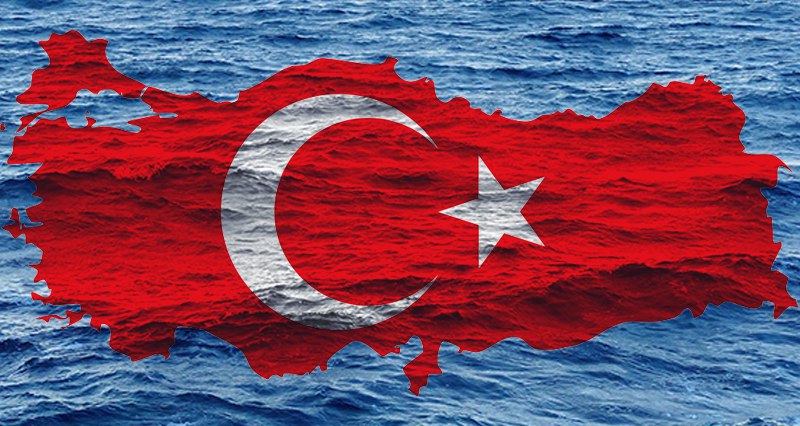Even though Turkey has responded to Greece’s wayward behavior with its armada, it should take advantage of the situation by leveling a diplomatic and juridical attack. To achieve this end, the following steps must be taken as quickly as possible:
– Take initiatives with the United Nations Security Council, the European Union and NATO on the violation of the demilitarized status of the islands.
– Take the necessary legal initiatives and follow state practices regarding the ownership of EGAYDAAKs (Islands and islets given to Greece by treaties).
– Make official calls for a return to the 3-mile regime in the Aegean.
– announce the EEZ in the Eastern Mediterranean via an agreement that was made with Lebanon, Egypt and Israel.
– Shift drilling and seismic activities to the west of 28° longitude.
– dissuade the Greek parliament from adopting the agreement by establishing diplomatic relations with Egypt.
The tension in the Eastern Mediterranean, which started with the harassment of Greece against the Turkish sovereign areas, moved to a higher level with Athens placing troops in Meis. The armament of Meis, which has a demilitarized status, contributes to a legal process that can eventually lead to abolishing the transfer requirement of these islands as well as disturbing the balance of Lausanne. While Turkey is warning Greece at the highest level, experts emphasize that the violation of demilitarized status for the United Nations Security Council needs to be done swiftly. Additionally, to initiate the judicial process regarding the islands and islets not given to Greece, the call for returning the 3-mil-regime in Aegean, and the announcement of the Exclusive Economic Zone in the Eastern Mediterranean, are among the steps that Turkey may take in the forthcoming period.
THE DEMILITARIZED STATUS IS VIOLATED
The legal regime of the non-military Aegean islands was determined by the Six Great States Decision, the Lausanne Peace Treaty in 1923, the Lausanne Straits Convention and the 1947 Paris Peace Treaty. Attempts to establish a balance according to these agreements were terminated on Turkey’s threats. But today, Greece claims that it armed its islands based on Article 51 of the United Nations Charter, and in this regard, it is not violating the main conventions. Although the article in question states that “Nothing in this Treaty shall prejudice the inherent right of individual or collective defense of a member of the United Nations, until the Security Council takes the necessary measures to protect international peace and security, in the event of an armed attack.” Even if this was said, the acceptance of the non-military status by contracts means the acceptance of an irregularity brought to the sovereignty of states.
https://uwidata.com/12521-greece-aegean-mediterranean-cyprus-libya/
Unlike the disarmed status, the demilitarized status refers to a regime that eliminates all fortification possibilities of the sovereign country by air, land and sea. For example, the use of the term disarmed allows the flight or even residence of military aircraft that are not used for military purposes, while the non-military status allows neither flights, coast guard vessels, nor unmanned vessels and aircrafts.
Article 5 of the Treaty of London, 15 of the Treaty of Athens, 13 of the Treaty of Lausanne, 4 and 6 of the Straits Convention, and 14 of the Treaty of Paris include peremptorily the adoption of the demilitarized status. Since these conventions do not include special provisions regarding the air and sea of the country; the regime must be implemented with the broadest interpretation. As a matter of fact, it is seen that various privileges within the demilitarized status are specifically defined in the “Agreement of the Neutralization of the Aaland Island in 1921”, taking into account the security of Finland. In this respect, under the current regime, Greece must not be allowed to land soldiers on the islands, and also to let civilian aircraft used for military purposes pass through the airspace. Likewise, in accordance with the San Remo Manual in 1994, even commercial ships used for military activities should be prevented, and the Coast Guard boats with military ship status should be withdrawn.
It has been evaluated that Turkey could strengthen its hand in the international arena if the necessary objections are delivered to the United Nations Security Council by indicating that the handover of the islands to Greece would be eliminated within this context.
TIME TO ATTACK
As determined by the National Security Council, there are 153 islands, islets and rocks (EGAYDAAK) whose sovereignty has not been transferred to Greece by treaties. The territorial waters, continental shelf, exclusive economic zone, airspace, and search and rescue responsibility cannot be assigned without determining the ownership of EGAYDAAKs, which have the territorial waters as large as half of Thrace. According to the Minister of Internal Affairs in 1936, Şükrü Kaya’s flying the flag and putting a signboard on these islands shows that Turkey has been interested in the islands for ages. Earlier, it has been made clear that Turkey staked a claim to the Eşek and Bulamaç islands in the Italian documents of 1932. Article 16 of the Treaty of Lausanne needs to be correctly interpreted. The article states the following:
“Turkey hereby renounces all rights and title whatsoever over or respecting the territories situated outside the frontiers laid down in the present Treaty and the islands other than those over which her sovereignty is recognized by the said Treaty, the future of these territories and islands being settled or to be settled by the parties concerned. The provisions of the present Article do not prejudice any special arrangements arising from neighborly relations which have been or may be concluded between Turkey and any limitrophe countries.”
Any provision was not established over the islets and rocks in this article was interpreted as Turkey renouncing all islands outside of 3 miles. As a matter of fact, the concept of an islet is used as a separate geographical formation in the article 15. It is also considered that a general provision cannot be applied in Lausanne, where there are special provisions on the islands.
Turkey, thus, needs to initiate judicial procedure for these islands, and eliminate the ownership question via the state implementations.
https://uwidata.com/11370-from-the-blue-homeland-to-the-high-seas/
A CALL TO RETURN TO THE 3 MILE REGIME
In the Treaty of Lausanne, the territorial waters Turkey and Greece in the Aegean were adjudicated to be 3 miles wide. However, Greece announced that it had increased its airspace to 10 miles in 1931, and then its territorial waters to 6 miles unilaterally in 1936 due to the threat of Mussolini’s Italy”. During this period, the Maritime Law Conference had not yet been assembled and the concept of the ‘continental shelf’ had not emerged. However, with the end of the hostility between Greece and Italy after the Second World War, the two countries becoming allies under NATO in 1952, and the emergence of the Convention on Continental Shelf in 1958, Greece was supposed to return the 3 mile regime in the pre-war situation in accordance with the “status quo ante”. Turkey increased its territorial waters to 6 miles because of Cyprus in 1964. But today, the three-mile-regime must be provided, in accordance with the request of Turkey and what the Greek president said in 2018: “The treaty defines the bilateral relations and limits, we do not believe that this is a treaty that needs to be discussed”. This regime, which increases the marine space to 75% and secures the justice over the share of continental shelf, will also be able to guarantee Turkey to reach the open sea without passing through the Greek territorial waters.
In addition, the perception that all of Greece’s islands have 6 miles of territorial water should be changed. Such an arrangement, which violates the principle of ‘not block the way of the states that are located on the opposite side, that are nearer than 200 miles to Turkey, and that are riparian states’, has no place in the international law. No sea areas were dedicated to Lan Tao Island in the delimitation agreement signed between China and Hong Kong British Administration in 1899 and to the Island of Ven in the treaty signed between Denmark and Sweden in 1930, although they were on the right side. In the decision regarding the dispute between Bahrain and Qatar, Qit’at Jaradah Island, which belongs to Bahrain, was defined as an “insignificant sea element”, which is small in terms of surface area and unsuitable for people to live, and was subsequently neglected. Dozens of similar decisions are available in Arbitration Courts and in the decisions of the International Court of Justice.
https://uwidata.com/13734-will-turkeys-great-victory-against-greece-be-repeated-100-years-later/
ANNOUNCING AN EZZ IN THE EAST MEDITERRANEAN
After the exclusive economic zone(EEZ) agreement was signed with Egypt, Greece is preparing a similar agreement with the Greek Cypriot Administration of Southern Cyprus (GCASC). Turkey should declare an EZZ in order to prevent the maximalist ideas of Greece, who does not even have a shore in the East Mediterranean and declared its main lines by drawing through its mainland. There is no obstacle to unilaterally declaring EZZ according to international law. For this, the main lines should first be determined, and then the sea borders should be declared and handed over to the United Nations as if an agreement was made with Lebanon, Egypt and Israel. In addition, it is believed that conducting seismic and drilling activities in these coordinates as a state practice will be beneficial. Although our Oruç Reis seismic research ship continues its activities by extending the Navtex, it does not cross the west of 28ۜ° longitude. However, the extension of the Navtex area to 26° longitude within Turkey’s jurisdiction would show the rejection of Greece’s theses regarding the islands.
https://uwidata.com/13647-the-deception-of-the-greeks-athens-unlawful-promises-to-its-people/
It should also be noted that the Egyptian Parliament has not yet approved the agreement with Greece. There are many examples in history where agreements were returned from parliaments or even canceled by the Constitutional Court after they were approved. The GCASC-Lebanon agreement also shows that there are steps we can take in regard to the Albania-Italy agreement. In this respect, we need to improve diplomatic relations with Egypt and make an effort to block this agreement.

















Leave a Reply